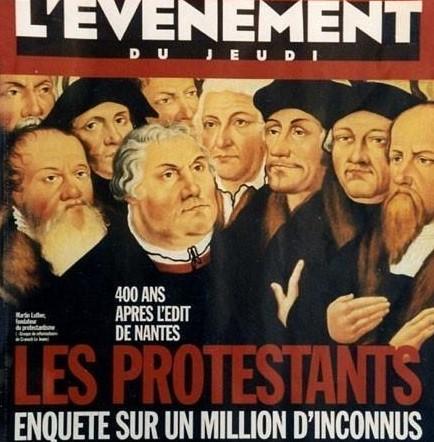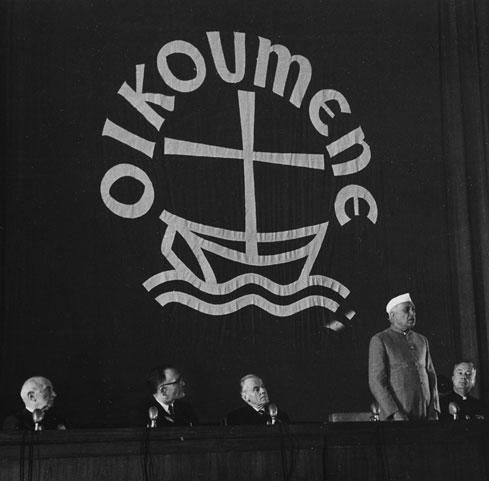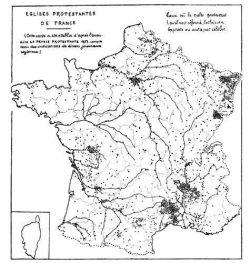The Sociology of Protestantism
The sociology of Protestantism shows the “historical” continuity of Protestantism in the Reformed Church and the Lutheran Church, and the development of Evangelical churches.
Quantitative assessment
The total number of Protestants living in France at the end of the 20th century is a matter for debate as the official census do not ask questions about religious denomination.
Several surveys and opinion polls were conducted in 1980 and 1995. That of 1995 assessed the “clearly stated” Protestants as 2% of the population, i.e. 1,100,000 people divided into two groups (R. Fabre) :
- About 600,000 Protestants declared their links to the churches of the Reform, of whom about 400,000 belonged to the Reformed Church and 200,000 to the Lutheran Church. The 1995 survey indicated that 39% only believed “partly or totally” in salvation through grace, the very basis of the Protestant faith ;
- About 500,000 claimed a cultural or sociological Protestantism, with more or less observance of Bible reading, praying, teaching religion to children.
To these two groups claiming ties to the Protestant community some (analysts) add around 500,000 people who still claim to be Catholic but close to Protestantism : these so-called « Catholic-Protestants » are often in mixed couples causing a sort of « dilution » of traditional Protestantism.
These figures, showing a weakening of historical Protestantism, did not take into account either the evangelical churches, mainly Baptists and Pentecostal, or the evangelical mission to Tziganes in France.
The identity of French Protestantism is less apparent than it used to be. Many reasons have been put forward for this :
- The urbanisation, mixing of populations and immigration, which has affected protestant strongholds, as testified by the decreasing number of Protestants in cities such as Nîmes or La Rochelle ;
- Inter-religious marriages with «ecumenical»celebrations became more and more frequent ;
- The secularisation of the whole of society is a current phenomenon ;
- Ecumenism has created relations where the balance of power evolves with time.
Qualitative assessment
On the other hand, the elitist character of Protestantism has become stronger. Compared to the national average, the number of senior executives was notably higher -18% versus 11%-, and the number of (blue collar) workers lower. The almost complete disappearance of the farming community should also be noted, a reduction to 1% (80% at the beginning of the 19th century), an evolution parallel with that of French society (4% of farmers). Protestants have tended to be present in the French administration, industry or politics.
A number of academics have been of Protestant origin, of whom two won the Nobel Prize for Science : Jacques Monod and Pierre-Gilles de Gennes.
Whatever the findings, Protestantism only ranked third after Catholicism and Islam, without taking agnostics into account. As Jean Paul Willaime put it « French religion (is) a secular religion with a Catholic background ».
Associated notes
-

The protestantisation of France ?
The last part of the 20th century saw the influence of Protestantism changing. If the old idea of a protestantisation of France was once again fashionable, it illustrated the perfect... -

The Protestant vote
Studies of the Protestant vote show that the political standpoint of Protestantism so clearly to the left at the end of the 19th century with the struggle for a secular... -

Controversial Protestantism
French Protestantism took part in the great debates of the second half of the 20th century. The controversial position of some Protestants in the 1960s was exemplified by the fight... -

The Protestants during the second half of the 20th century
French Protestantism during the second half of the 20th century was marked by the development of evangelic trends. The traditional liberal and progressive attitudes tended to lose ground with the...

